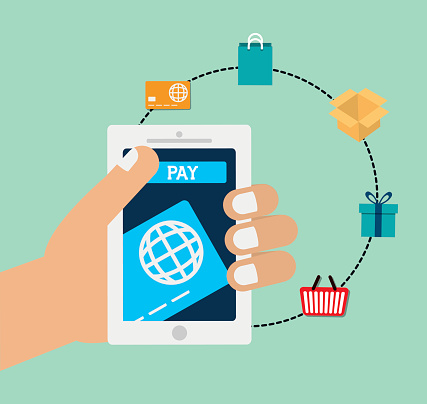The correct answer may be “which version?” Also known as mobile money or a mobile money transfer, a mobile wallet is basically any payment service conducted via mobile device and through a financial regulating authority. The usual methods of mobile payments currently available include SMS (Short Message Service), WAP (Wireless Application Protocol), NFC (Near Field Communication) and direct mobile payments.
SMS is commonly used for purchasing digital products such as music or ringtones. MMS versions may also be used to deliver QR codes or barcodes that can be scanned and used as a ticket to see a film or other event. WAP is similar to making a payment on your desktop. Additional web pages or applications may be downloaded to the device to facilitate payment (think eBay) but commonly one would also use PayPal or a debit/credit card to provide payment.
Direct mobile payments are most popular in Asia where most of the digital content is paid for using this method. An e-commerce site merely has to provide a mobile billing option, a two-factor authentication process (often a PIN and a one-time password or OTP) and the consumer’s mobile account is charged without the need for banks, credit card or alternate payments such as PayPal.
NFC appears to be the most favoured by banks and businesses due to the speed and ease of processing payments, especially at POS. Similar to the microchip-embedded credit card “tap,” NFC allows two devices to communicate wirelessly through radio waves. NFC-enabled devices have three different capabilities, which is probably why this method is being increasingly embraced: NFC can behave like a “smart card” and process payments and ticket transactions; NFC can be peer-to-peer, allowing two NFC-enabled devices to communicate freely; and it acts as a reader/writer program whereby NFC devices can read (and occasionally rewrite) information stored on NFC tags. NFC tags may contain nearly any kind of information including credit/debit card information, loyalty program data and PINs.
Mobile wallets have certain advantages for retailers: they may help reduce fraud as mobile wallets are more difficult to steal or duplicate than cards or cash; payments are faster (perfect during busy store hours) and lower processing fees may be offered by financial institutions. One of the best advantages is the ability to encourage better customer loyalty through sales promotions and incentives sent directly to customers’ smartphones.
As the millennial and Gen X generations grow into being the leading demographic, natural health retailers need to be open to accepting payments however their customers would prefer to pay.









